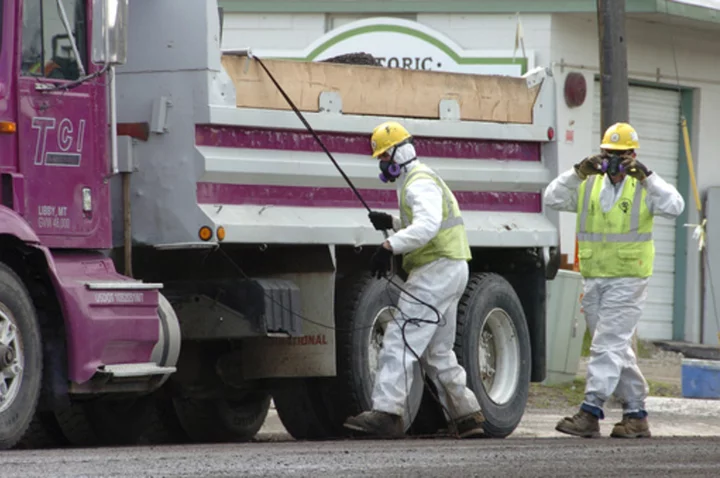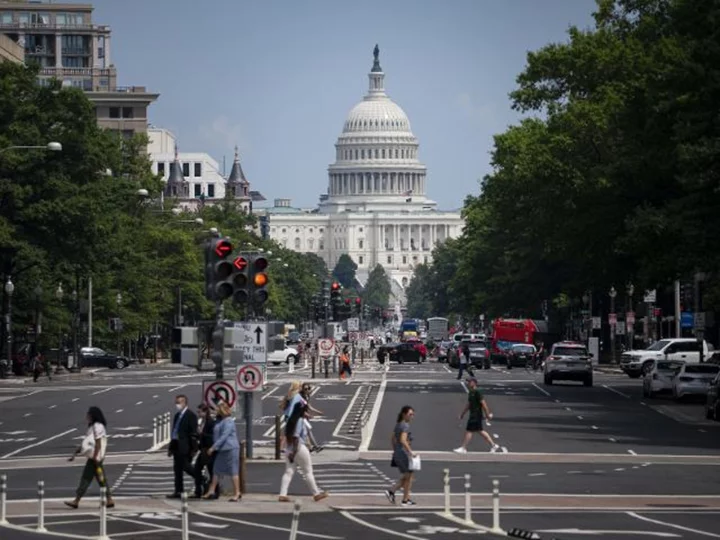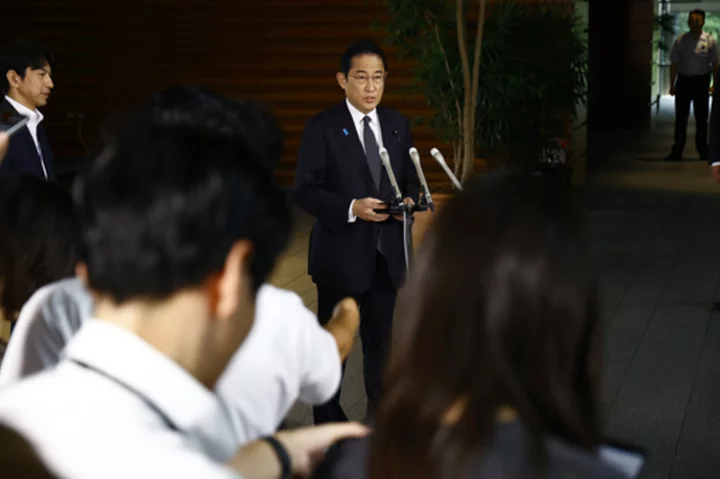BUENOS AIRES, Argentina (AP) — Right-wing populist Javier Milei has been president-elect just four days and already Argentina’s unions and social organizations are vowing pushback and even protests if he makes good on his promises to slash the size of the state and privatize companies.
Milei, who famously campaigned with a revving chainsaw to demonstrate what he would do to public spending, says radical measures are needed to get the South American country’s moribund economy back to life and reduce annual inflation of 140%.
The day after winning the election with a wider than expected margin, 56% to 44%, the libertarian said in a radio interview that "everything that can be in the hands of the private sector will be in the hands of the private sector.” He has said he wants to privatize state-owned media companies and state-run oil and gas firms, and has raised the possibility of privatizing water distribution and train service, as well as ending all public works.
Labor union leaders said Thursday they are paying close attention to what the libertarian president-elect says and what they are hearing is in opposition to their interests.
“We clearly have as a central idea for the country development, with production and the creation of jobs, and it seems that all (Milei's) affirmations about cuts in the economy, about privatizations and other things do not go down this path,” Héctor Dear, the secretary general of the powerful General Confederation of Labor umbrella organization, said following a meeting with labor leaders.
The most emphatic opposition so far to Milei’s privatization plans came from the head of the Airline Pilots Association, Pablo Biró, who said Wednesday that Milei “will have to literally kill us” to go through with his plan to change the ownership structure of state-owned airline Aerolineas Argentinas.
Most labor leaders, however, have emphasized a wait-and-see attitude, saying they’re on alert but recognize Argentines voted for Milei and will wait for him to implement policies.
“In the moment they move forward with reforms related to labor rights, both individual and collective, and when the labor organizations affected by these adjustments request it, the CGT will take a stance,” Dear said.
Some, however, made clear the resistance has already started.
“We cannot wait to see if this man succeeds,” Daniel Catalano, secretary general of the State Workers’ Association, said during the march by the Mothers of Plaza de Mayo. “We expect absolutely nothing from Javier Milei.”
Catalano was one of the representatives of labor unions and social organizations who joined the Mothers of Plaza de Mayo in their weekly march in downtown Buenos Aires Thursday.
The weekly event by the human rights group made up of mothers of children who disappeared during Argentina’s military dictatorship (1976-1983) took on a different tone Thursday as groups called on supporters to join the mothers to symbolically represent opposition to Milei’s government.
There’s also concern among human rights organizations about a potential setback in policies that allowed for the prosecution of perpetrators of crimes against humanity during the dictatorship.
Leaders of leftist social organizations also held a meeting Thursday to discuss their response to Milei’s policies and “a plan for struggle against austerity” that will involve street protests.
Milei has warned of inevitable pain ahead as a result of his policies, repeatedly saying that “there is no money,” noting “it’s likely we’ll have to endure six tough months, but they will be the foundation for Argentina’s takeoff.”
He has also recognized there’s likely to be protests as a response to his policies.
“The law will be applied, and I will not let myself be extorted,” he said.
Milei will “probably want to carry out the privatizations fairly quickly,” said Nicolás Saldías, senior analyst at the Economist Intelligence Unit for Latin America and the Caribbean, who warned that “a lot of social protest” may very well be inevitable.
“A lot of labor unions are highly mobilized, this is a high stakes situation for them,” Sadias added, noting that “Milei is going to face a lot of resistance on the streets.”
Argentina has a long tradition of labor unions and powerful social organizations that block roads and carry out strikes to protest as a way to pressure the government to heed their demands, and respecting the right to protest has been a hallmark of most of the governments that have ruled the country over the past two decades.
In addition, due to a history of violent response to these protests that have included deaths, law enforcement is often hesitant to break them up.
—————
Associated Press writer Débora Rey contributed to this report.









